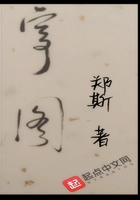Captain Lewis then called out to him in as loud a voice as he could, repeating the words tabba bone, which in the Shoshonee language mean white man. But, looking over his shoulder, the Indian kept his eyes on Drewyer and Shields, who were still advancing, without recollecting the impropriety of doing so at such a moment, till Captain Lewis made a signal to them to halt: this Drewyer obeyed, but Shields did not observe it, and still went forward. Seeing Drewyer halt, the Indian turned his horse about as if to wait for Captain Lewis, who now reached within one hundred and fifty paces, repeating the words tabba bone, and holding up the trinkets in his hand, at the same time stripping up the sleeve of his shirt to show the color of his skin.
The Indian suffered him to advance within one hundred paces, then suddenly turned his horse, and, giving him the whip, leaped across the creek, and disappeared in an instant among the willow bushes: with him vanished all the hopes which the sight of him had inspired, of a friendly introduction to his countrymen."
Sadly disappointed by the clumsy imprudence of his men, Captain Lewis now endeavored to follow the track of the retreating Indian, hoping that this might lead them to an encampment, or village, of the Shoshonees. He also built a fire, the smoke of which might attract the attention of the Indians. At the same time, be placed on a pole near the fire a small assortment of beads, trinkets, awls, and paints, in order that the Indians, if they returned that way, might discover them and be thereby assured the strangers were white men and friends.
Next morning, while trying to follow the trail of the lone Indian, they found traces of freshly turned earth where people had been digging for roots; and, later on, they came upon the fresh track of eight or ten horses. But these were soon scattered, and the explorers only found that the general direction of the trails was up into the mountains which define the boundary between Montana and Idaho. Skirting the base of these mountains (the Bitter Root), the party endeavored to find a plain trail, or Indian road, leading up to a practicable pass.
Travelling in a southwesterly direction along the main stream, they entered a valley which led into the mountains.
Here they ate their last bit of fresh meat, the remainder of a deer they had killed a day or two before; they reserved for their final resort, in case of famine, a small piece of salt pork.
The journal says:--"They then continued through the low bottom, along the main stream, near the foot of the mountains on their right.
For the first five miles, the valley continues toward the southwest, being from two to three miles in width; then the main stream, which had received two small branches from the left in the valley, turned abruptly to the west through a narrow bottom between the mountains.
The road was still plain, and, as it led them directly on toward the mountain, the stream gradually became smaller, till, after going two miles, it had so greatly diminished in width that one of the men, in a fit of enthusiasm, with one foot on each side of the river, thanked God that he had lived to bestride the Missouri. As they went along their hopes of soon seeing the Columbia [that is, the Pacific watershed] arose almost to painful anxiety, when after four miles from the last abrupt turn of the river [which turn had been to the west], they reached a small gap formed by the high mountains, which recede on each side, leaving room for the Indian road.
From the foot of one of the lowest of these mountains, which rises with a gentle ascent of about half a mile, issues the remotest water of the Missouri.
"They had now reached the hidden sources of that river, which had never yet been seen by civilized man. As they quenched their thirst at the chaste and icy fountain--as they sat down by the brink of that little rivulet, which yielded its distant and modest tribute to the parent ocean--they felt themselves rewarded for all their labors and all their difficulties.
"They left reluctantly this interesting spot, and, pursuing the Indian road through the interval of the hills, arrived at the top of a ridge, from which they saw high mountains, partially covered with snow, still to the west of them.
"The ridge on which they stood formed the dividing line between the waters of the Atlantic and Pacific Oceans. They followed a descent much steeper than that on the eastern side, and at the distance of three-quarters of a mile reached a handsome, bold creek of cold, clear water running to the westward.
They stopped to taste, for the first time, the waters of the Columbia; and, after a few minutes, followed the road across steep hills and low hollows, when they came to a spring on the side of a mountain.
Here they found a sufficient quantity of dry willow-brush for fuel, and therefore halted for the night; and, having killed nothing in the course of the day, supped on their last piece of pork, and trusted to fortune for some other food to mix with a little flour and parched meal, which was all that now remained of their provisions."













